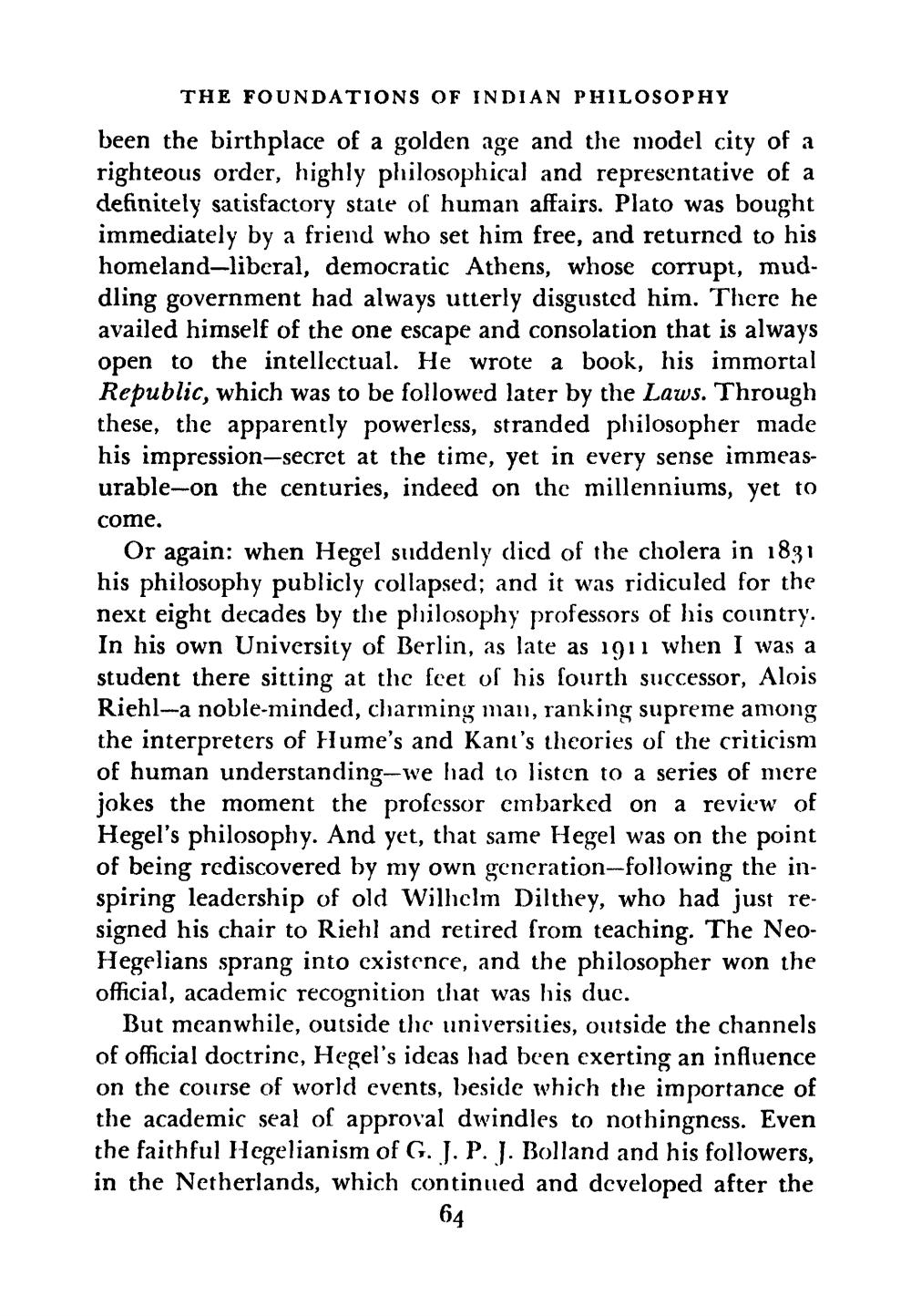________________
THE FOUNDATIONS OF INDIAN PHILOSOPHY
been the birthplace of a golden age and the model city of a righteous order, highly philosophical and representative of a definitely satisfactory state of human affairs. Plato was bought immediately by a friend who set him free, and returned to his homeland-liberal, democratic Athens, whose corrupt, muddling government had always utterly disgusted him. There he availed himself of the one escape and consolation that is always open to the intellectual. He wrote a book, his immortal Republic, which was to be followed later by the Laws. Through these, the apparently powerless, stranded philosopher made his impression-secret at the time, yet in every sense immeas
ble-on the centuries, indeed on the millenniums, yet to come.
Or again: when Hegel suddenly died of the cholera in 1831 his philosophy publicly collapsed; and it was ridiculed for the next eight decades by the philosophy professors of his country. In his own University of Berlin, as late as 1911 when I was a student there sitting at the feet of his fourth successor, Alois Riehl-a noble-minded, charming man, ranking supreme among the interpreters of Hume's and Kant's theories of the criticism of human understanding-we had to listen to a series of mere jokes the moment the professor embarked on a review of Hegel's philosophy. And yet, that same Hegel was on the point of being rediscovered by my own generation-following the inspiring leadership of old Wilhelm Dilthey, who had just resigned his chair to Riehl and retired from teaching. The NeoHegelians sprang into existence, and the philosopher won the official, academic recognition that was his duc.
But meanwhile, outside the universities, outside the channels of official doctrine, Hegel's ideas had been exerting an influence on the course of world events, beside which the importance of the academic seal of approval dwindles to nothingness. Even the faithful Hegelianism of G. J. P. J. Bolland and his followers, in the Netherlands, which continued and developed after the
04




